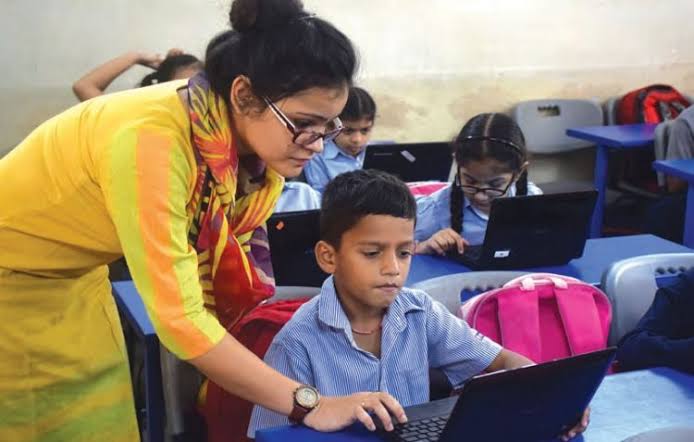Rajesh Bhatia, the founder of the TreeHouse chain of schools articulates how to foster confidence in pupils
A teacher’s attitude towards a student significantly influences their confidence levels and approach towards academics and life. This is why educator Rajesh Bhatia believes that a teacher’s conduct in the classroom should be rooted in the notion that every child is capable of succeeding. The founder of the TreeHouse chain of schools says, “It is essential to demonstrate an expectation of good behaviour, diligence, and excellence from every student in the classroom. Believing in your students is the key to building positive relationships with them, he says and offers a few more tips to foster mutual trust and respect between educators and pupils.
Active engagement
Various studies, including one conducted by the Psychological Sciences Journal Frontiers, have underscored the significance of engagement within the student-teacher relationship. It encompasses three fundamental dimensions. Firstly, there is behavioural engagement, where the teacher assumes a pivotal role in promoting active participation among all students during class discussions. The second dimension is cognitive engagement, entailing the facilitation of students’ psychological investment in the learning process through the utilization of diverse assessment tools. Lastly, the third and arguably most critical facet is emotional engagement, which delves into students’ inner thoughts and emotions, exerting a profound influence on their enthusiasm, attendance, and overall attitudes toward education. To sustain student engagement, it is imperative to promote active participation and goal-setting. Actively involving students in the learning process is also important. Encouraging goal-setting, both collectively and individually, yields substantial benefits.
Actively listen to students
To nurture a strong teacher-student relationship, educators should prioritize dedicating time to their students. Active listening to their concerns forms an integral aspect of emotional engagement. One-on-one meetings hold substantial potential for building a unique rapport with students, going beyond the typical impact of interactions with the entire class. When teachers demonstrate genuine care, it can deeply affect the student. Furthermore, establishing connections with students’ parents provides valuable insights into their backgrounds, strengths, and weaknesses. This understanding empowers teachers to develop tailored strategies for facilitating both academic and social growth.
Reward system
The implementation of a classroom reward system is essential within schools. This system does not necessarily involve cash or a credit-based approach. Verbal praise and recognition, whether for individuals, groups, or the entire class, can have a significantly positive impact. Students greatly appreciate words of encouragement from their teachers, especially when they have earned it. However, it is crucial to offer such praise without undermining the feelings of other students who may not be doing as well. It is imperative not to diminish the accomplishments of one student in an effort to praise another. Classroom privileges, such as appointing top-performing students as leaders, can be effective. Additionally, a badge system to acknowledge high achievers and motivate others to excel academically is a commendable approach.
Positive learning environment
Educators bear the responsibility of cultivating a conducive learning environment within the school. TreeHouse schools, for instance, prioritize safe spaces for effective communication between teachers and students. To create this optimal learning environment, it is ensured that every student feels confident enough to share his or her concerns, is heard, and helped, receives ample time to complete tasks, and is motivated impartially. Additionally, teachers ensure that students receive essential emotional support throughout their educational journey.
It is also equally important for teachers to provide honest feedback, whether through verbal or written means. This feedback should be specific and designed to motivate students towards further improvement, rather than impacting their self-belief adversely.
👉 Click here to read the latest Gujarat news on TheLiveAhmedabad.com




